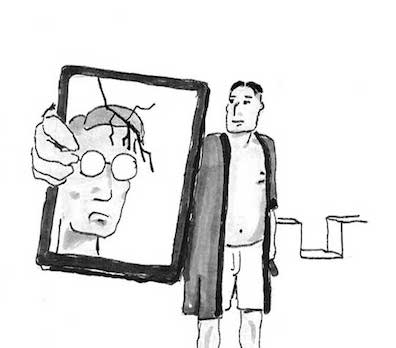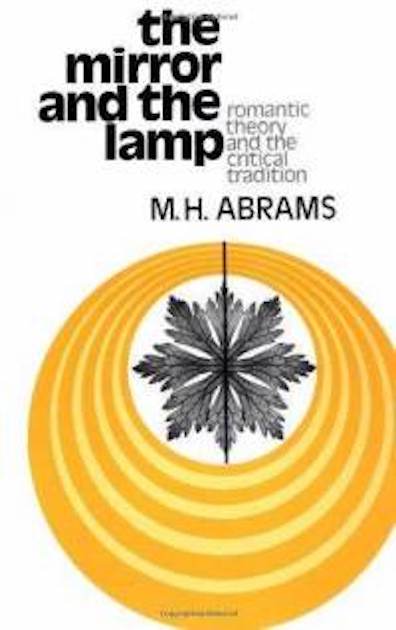Stephen says bitterly, "It is a symbol of Irish art. The
cracked lookingglass of a servant." Before the players in
Hamlet imitate Claudius's murderous action Hamlet tells them
that the purpose of dramatic representation is "To hold as
'twere the mirror up to nature," and, in a classic study, M.
H. Abrams observes that mirrors are traditional symbols of art
conceived classically as a faithful mimetic representation of
external reality. Stephen's characterization of the mirror
seems to suggest that such representational truth-telling is
difficult within the confines of colonial subjection.
When he was living outside of Ireland, and struggling to get
Dubliners into print, Joyce wrote to the publisher
Grant Richards, “It is not my fault that the odour of ashpits
and old weeds and offal hangs round my stories. I seriously
believe that you will retard the course of civilization in
Ireland by preventing the Irish people from having one good
look at themselves in my nicely polished looking-glass” (Letters,
63-64). His book of stories, then, intends to show Caliban
his face in a mirror. Seeing themselves represented
unflatteringly may liberate the Irish from ignorance and
complacency. Stephen has not yet managed to write anything
like the searing but honest portrayal of external reality
described in Joyce's letter to Richards, and in Telemachus
the despondency that he feels being back in Dublin appears to
include doubt that he can represent Ireland truly while living
trapped within it. At the end of Aeolus, however, he
resolves to attempt it.
In James Joyce's Ulysses: A Study (1930), Stuart
Gilbert noted an additional context for the image of a “cracked
looking glass” that may complicate or even refute
the foregoing reading. In The Decay of Lying
(1889), Oscar Wilde uses the phrase to object to
the notion that art mirrors external reality. Wilde espoused
the Romantic belief in
individual genius—the view that Abrams characterizes as
a "lamp." In this view, the genius of the artist is more
valuable than what most human beings regard as reality. The
fact that Stephen repeats Wilde's phrase verbatim, and the
fact that Mulligan has just invoked another work by the same
author, may recommend this anti-mimetic reading of the
sentence.

